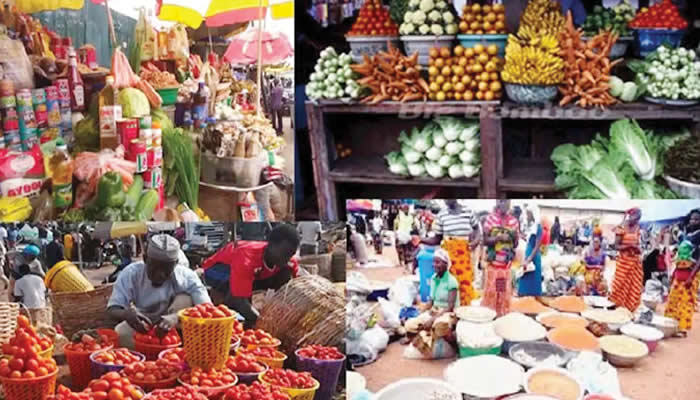Alarming 31% Surge: National Bureau of Statistics Reveals Soaring Food Prices Gripping Nigeria
Food prices in Ebonyi and Abia states have surged by a staggering 31 percent over the course of 12 months, spanning from July 2022 to July 2023, according to an exhaustive analysis of the ‘Selected Food Price Watch.’ This monthly report, meticulously published by the National Bureau of Statistics, scrutinizes the costs of essential food items including staples like rice (1kg), beans (1kg), bread (500g), tomatoes, beef, wheat (2kg), garri (1kg), and palm oil (1 bottle).
The report exposes a disconcerting trend where the price of yam takes the lead with a remarkable 42 percent increase, surging from N389.75 in July 2022 to N539.41 in 2023. Not far behind, the cost of one kilogram of rice escalated from N467.80 to N653.49 within the same 12-month period.
Simultaneously, palm oil witnessed a formidable 35 percent increase, ascending from N890.67 to N1208.62 over the period under scrutiny. Other staple foods compounding the escalating food prices include Garri (1kg), surging by 33 percent from N323.17 to N429.89, and 500g of sliced bread, which climbed from N486.27 to N651.78, representing a 34 percent hike.
Further contributing to the dilemma, a kilogram of tomato witnessed an upward trajectory from N446.81 to N557.96, Wheat (2kg) increased from N1094.72 to N1419.14, and Beef surged from N2118.84 to N2758.13. These figures depict significant spikes in the prices of crucial staple food items.
Delving deeper into the data, it becomes evident that South-Eastern states, notably Abia and Ebonyi, have borne the brunt of this food price surge during the 12-month period. In contrast, states within the North Central region, including Kogi, Niger, and Benue, have maintained relatively lower food prices during this time.
In its most recent Consumer Price Index report, designed to gauge inflation, the National Bureau of Statistics highlighted that food inflation, which stood at 29.34 percent in August, played a pivotal role in propelling headline inflation from 24.08 percent in July to 25.80 percent in August. The NBS identified increases in the prices of oil and fat, bread and cereals, fish, fruit, meat, vegetables and potatoes, yam and other tubers, vegetable, milk, cheese, and eggs as the key drivers behind this year-on-year rise in food inflation.












